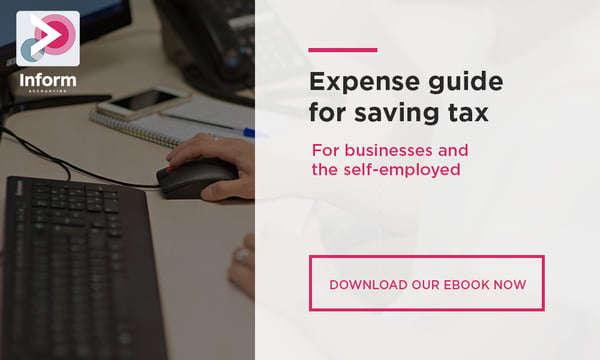BLOG
Tax charges on company vans

Choosing the right van for your business requires consideration of a lot of things; boot space, emissions and insurance costs. But it's also worth thinking about the tax implications of the van you're looking to buy, particularly if you're purchasing it through a limited company.
Tax charge on company vans
An employee may be provided with a company van to enable them to do their job. Where that van is also available for the employee’s private use, a tax charge arises under the benefit in kind legislation. However, if private use is limited to home-to-work travel, the van can be provided tax-free.
If the employer also pays for petrol for private journeys in a company van, a separate van fuel scale charge arises.
Business use only
If the van is only used for business journeys, there is no tax to pay and no employer’s Class 1A National Insurance. This would be the case if, say, an employee drove to the employer’s premises in his or her own vehicle, picked up the van and drove the van for work purposes, returning it to the employer’s premises at the end of the day. Journeys to a temporary workplace also count as business journeys and where this is the case, the employee can start the van journey from home.
Unrestricted private use
Private use is use of the van other than business use. When the employee has unrestricted private use of a van, a tax charge arises. The amount that is charged to tax is £3,490 for 2020/21 and £3,430 for 2019/20 where the van is not an electric van. Consequently, a higher rate taxpayer will pay £1,396 in tax for 2020/21 and a basic rate taxpayer will pay £698.
The employer also pays Class 1A National Insurance on the van and fuel charge.
Restricted private use
There is no tax charge if the restricted private use condition is met. There are two tests that must be satisfied for this to be the case – the commuter use requirement and the business travel requirement.
The commuter use requirement stipulates that the terms on which the van is made available to the employee prohibit private use other than for home to work travel and the van is not used otherwise for private travel. Insignificant private use, such as stopping to buy a newspaper on the way to work, is ignored in determining whether this condition is met.
The business travel requirement stipulates that the van is mainly available to the employee for the purposes of the employee’s business travel.
Where the restricted private use condition is met, there is no tax to pay, and also no fuel benefit if the employer pays the cost of the fuel for home to work travel.
Zero-emission vans
For 2020/21, zero-emission vans are charged at 80% of the full charge, i.e. £2,792 (80% of £3,490). For 2019/20, the charge was 60% of the full charge, i.e. £2,058 (60% of £3,430).
At the time of the March 2020 Budget, the Government announced that legislation is to be introduced to reduce the van benefit charge to zero for zero-emission vans with effect from 6 April 2021.
Pool vans
No charge arises in respect of a van that meets the conditions for a pool van. To qualify, the van must be:
- available for use and used by more than one employee;
- available to each employee because they need it to do their job;
- not ordinarily used by one employee to the exclusion of others;
- not normally kept at or near and employee’s home;
- used only for business journeys (although limited private use is allowed if incidental to the business use).
Pool vans do not need to be reported to HMRC.
Read more of Inform's tax blogs:
Live page: Accounting advice during business disruption
It's that wonderful time of the year...for fraudsters to pray on taxpayers!
Paying yourself a salary: What are the most tax efficient options for limited company owners?
Four key cashflow issues that could cripple your business (and how to avoid them)...




.jpg?width=1500&height=1000&name=amy-hirschi-K0c8ko3e6AA-unsplash-(5).jpg)

